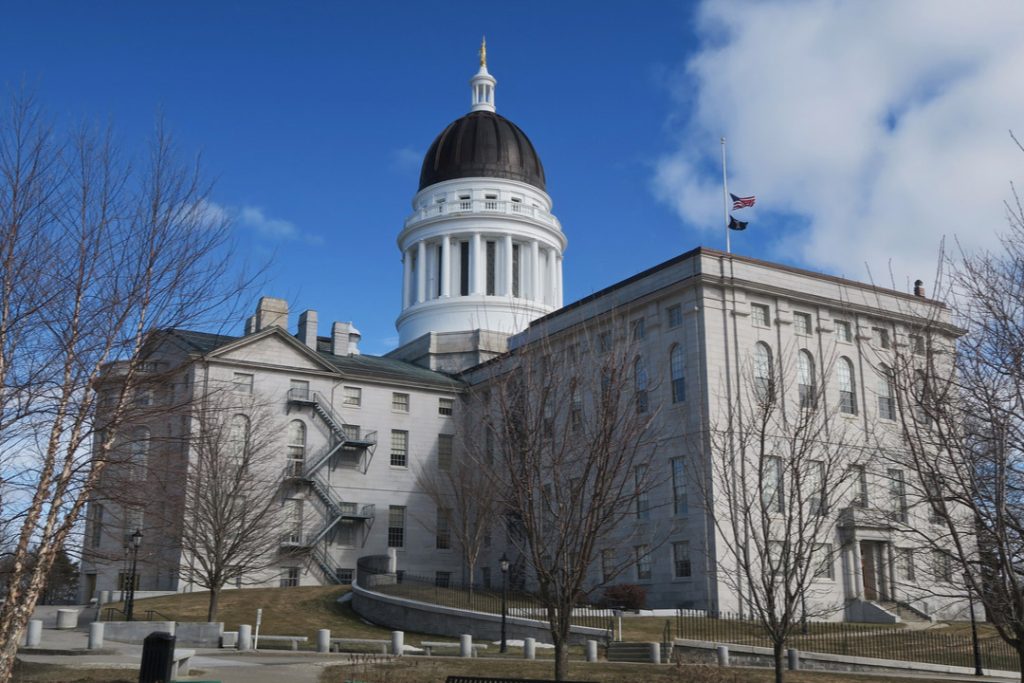
The bill passed the state Senate 21-13 on Feb. 6 entirely on party lines, the House 76-56 on Feb. 15, and was chaptered into law on March 5. | Yurii-Prohonnyi/Shutterstock
Although there are no chemical recycling facilities currently operating in the Pine Tree State, any starting up in the future will be considered “chemical plastic processing” operations subject to solid waste facility permitting, and their process will not be considered “recycling,” lawmakers recently voted.
First introduced in April 2023, Maine’s Legislative Document 1660 is written as “an act to ensure proper regulation of chemical plastic processing,” which is commonly known as chemical recycling, “advanced” or even “molecular” recycling. All terms refer to a group of technologies that process scrap plastic chemically into its basic components (typically its monomers) rather than mechanically, through shredding, washing and re-pelletizing.
The bill enshrines in law that these facilities require solid waste licensing and that they won’t be considered to be “recycling.”
The bill passed the state Senate 21-13 on Feb. 6 entirely on party lines, with all Democrats in favor and all Republicans opposed. It passed the House 76-56 on Feb. 15, again largely on party lines with Democrats supporting and Republicans opposed. It was chaptered into law on March 5.
The Maine bill was introduced by Sen. Anne Carney, Democrat of Maine’s Cumberland County, who spoke ahead of a vote on the bill Feb. 6, noting there are no chemical recycling facilities in Maine. But she referenced the numerous bills sponsored by plastics industry groups in states around the U.S. that seek to classify chemical recycling as “manufacturing” operations rather than waste disposal facilities.
“The end result … is to exempt these facilities from solid waste management laws and regulations,” Carney said. “It allows facilities to evade the public permitting process, siting restrictions, reporting requirements and operating conditions that apply to every other solid waste facility.”
She said the bill “will protect Maine from this type of harmful legislation.”
Prior to the senate vote, Sen. Peter Lyford, a Republican representing communities in Penobscot County, said opponents view the bill as “problematic” because it penalizes a process he views as complementary to mechanical recycling.
Lyford gave an example of chip bags, typically a multi-layer packaging that is not accepted by traditional mechanical recycling operations. (It’s difficult to separate such packaging materials mechanically.) Chemical recycling “is a way to recycle these types of products,” he said.
Chemical recycling, he said, “takes products that aren’t part of the traditional mechanical recycling, and breaks them down” into materials that can be used as feedstock for new products.
Lyford added that he views the bill as being “in conflict” with the state’s extended producer responsibility (EPR) program, approved by lawmakers in 2021 and currently in regulatory development.
Republican Sen. Trey Stewart of Aroostook County also spoke against the bill, noting he agrees the process is not “recycling” as typically defined, but that it is a tool to battle plastic waste.
“Preempting that we could do something new and novel about that issue, with this legislation, just to me feels completely backwards,” he said.
Carney emphasized that the bill does not prevent chemical recycling facilities from siting in Maine, it just clarifies the permitting requirements they’ll need to meet and it offers guidance to state regulators that the process isn’t considered “recycling.”